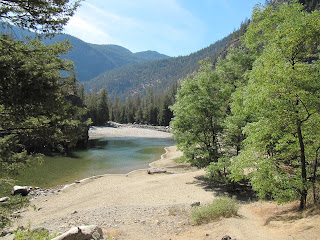Why would previously elected governments cut services that would ultimately harm the economy when they build their campaigns on the economy?
Why are essential services, that intervene in crises before they reach their ultimate social cost, being underfunded or shut down?
Why does the corporate media in its news and entertainment programs promote an image of our world as greed-driven, macho, and violent while all the serious discussions around how to effectively deal with the problems are slotted in the back pages or late night shows?
Why has so much hatred been directed towards those who love or pray differently and why has so much contempt for the poor and marginalized been inflamed and so little done to alleviate the misery?
Why have our governments failed to care for the environment upon which our future health and wealth depend?
At first these may seem like separate issues but to me, they are all connected in one very important way – they lead towards social breakdown and ultimately destroy civil society.
So it appears that some in government and media, actively support and work towards the destruction of the entity they are supposed to be governing. It also appears as though people in Western democracies are voting for the parties that are destroying their futures.
Is this intentional? Are there powerful interests conspiring to bring about a slow and painful end to the human project, or has something gone terribly wrong in the way we identify with the collective future?
David Suzuki points out that we have “developed a way to estimate economic activity by measuring the value of all transactions for goods and services” called the Gross Domestic Product. However it doesn’t seem to include the services that come from government – that is disdainfully called taxes.
Corporations measure their success not by the quality of their products or how it helps people, but by how much their stock sells for. Politicians measure their success, not by what they have done for their constituents, but by how many votes they get.
In essence, what this means is that the health and well-being of humanity and the environment, is “overburden” to use a mining term. What this means for us and our children is less health care, lower education in terms of learning rather than superficial tests, less public transportation, more pollution environmentally and culturally, the silencing of real debate, the end of science, a global distancing from the reality we live, and a greater focus on invasive corporate measures.
Prisons will be filled with environmentalists and activists for social justice. People will be afraid to talk to their neighbours. City centres will become territorial battle grounds for drug lords. The sensitive and educated will die quietly from drug overdose. Families will break up under stress. Suicide will overtake obesity as the major epidemic. Bigotry, prejudice and balkanized wars will make the commons uninhabitable.
If we want to know what this looks like, think of all the failed nation states constantly in turmoil while transnational companies extract huge profits. Think of pipelines covering the earth, the sky filled with industrial chimneys and dark satanic mills powered by slave labour getting crushed or burned in hazardous warehouses. To use a quote attributed to George Orwell “If you want a vision of the future, imagine a boot stamping on a human face – forever.”
The enemy is not one particular country, the enemy is that dissociated power universally accepted as force, rather than something that flows from our relationship to the environment in which we live. When we cease to look inside ourselves for the capacity to care and organize a humane world, we become victims or sociopathic egos punishing all that we can’t control.
We have come to this stage not because of progress but because of a ubiquitous disorder which we must examine to begin the work of healing. Our power lies in many things but mostly in accepting we are vulnerable, fallible and mortal.
This post was first published in The Flying Shingle then online at Episyllogism.










